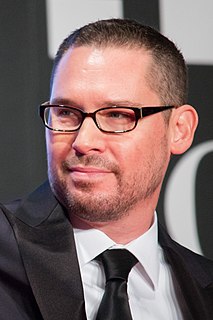A Quote by Robert Morgan
I tell students they will know they are getting somewhere when a scene is so painful they can just barely bring themselves to write about it. A writer has to draw blood.
Related Quotes
All writers write about themselves, just as the old storytellers chose to tell stories that spoke to and about themselves. They call it the world, but it is themselves they portray. The world of which they write is like a mirror that reflects the inside of their hearts, often more truly than they know.
Sometimes people come in as a director, and they just want the result, and they barely want that to tell you the truth. Sometimes directors barely talk to the actors; they are so focused on the cinematic elements of the movie, getting the shot and getting the lighting right or getting the CGI effects right and all of that, and they just trust that you are just going to do what you do.
If you give the actors a problem 'I'm not getting something out of the scene' and it's the writing, we just don't have the scene, if you give them the problem and just give them some key thoughts they can bring some great solutions to the equation too. So if it's just not perfect, or I'm not getting all I can, I'll open it up to them and say let's talk about it.
When I first started writing, there was no way I'd write a sex scene. That just seemed impossible. That's why in "Fight Club" all the sex happens off-screen. It's all just a noise on the other side of the wall or the ceiling. I just couldn't bring to write in a scene like that. So one of the challenges with "Choke" was I wanted to write sex scenes until I was really comfortable just writing them in a very mechanical way.




































